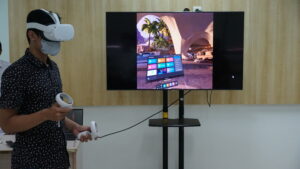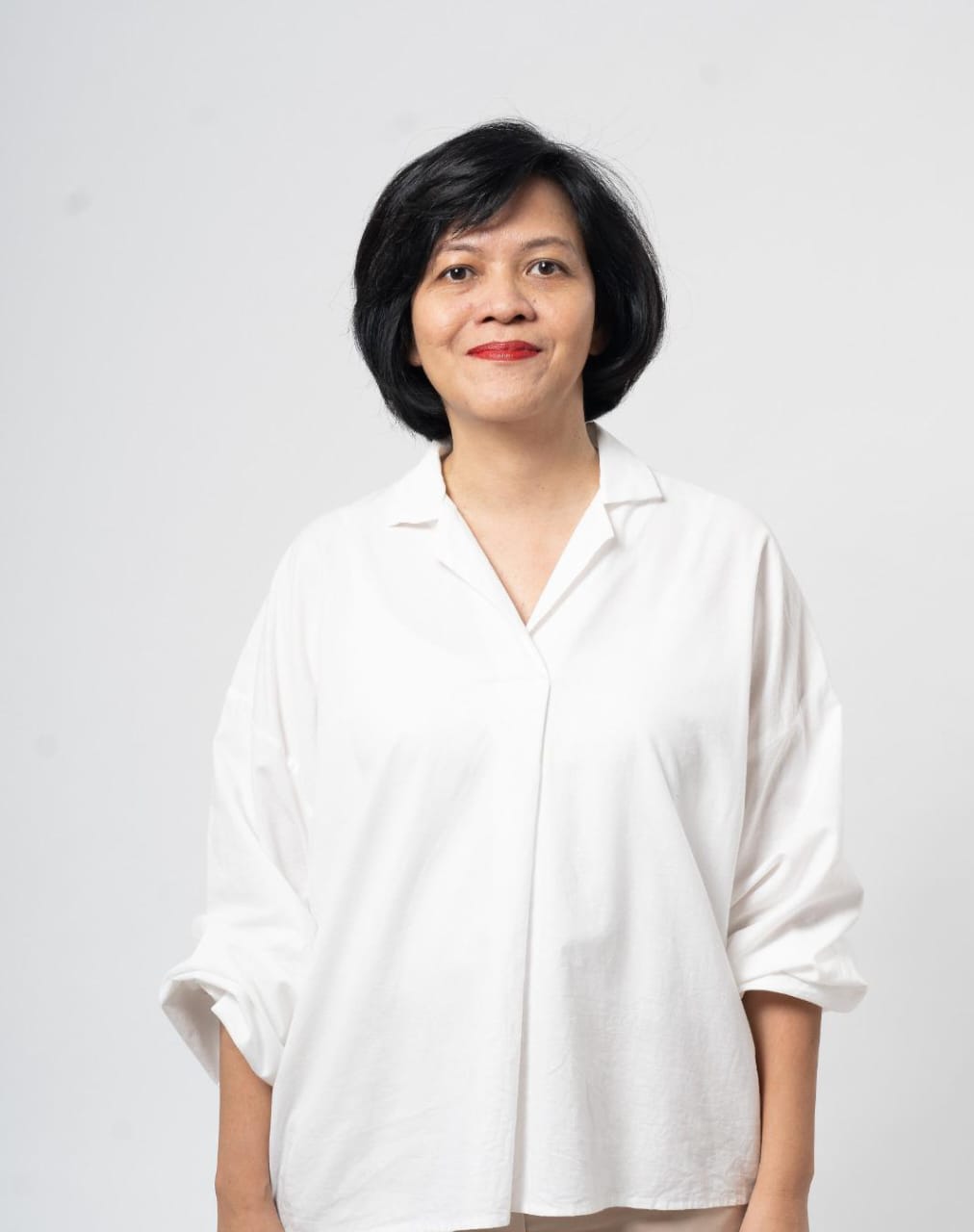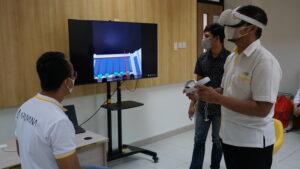
Virtual reality (VR) is increasingly being used in various fields, including in the health industry, such as in surgery practice in Germany, psychotherapy, and stroke rehabilitation. As one of the higher education institutions that has a study program in the health sector, Vocational Education Program at Universitas Indonesia (UI) has also contributed to innovating the development of VR technology. In mid-2022, Vocational UI developed a virtual laboratory with the application of virtual reality (VR), augmented reality (AR), and mixed virtual reality (MVR) as a teaching factory called SADEWA VR Lab (Stimulating and Developing Excellent Wellness Accomplish).
SADEWA VR Lab has advantages such as being used as a practical learning tool; having unlimited space and time flexibility; having time efficiency because five applications can be run in parallel; being easily accessible and user-friendly; as well as being applicable for clients (children and adults) who experience neurological problems, movement/motor limitations, and cognitive.
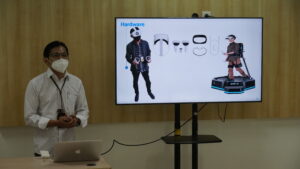
In addition to education and practical learning, the virtual application facilities will also be applied directly as a therapeutic program in patients at Vocation Wellness Center (VWC) Clinic, which is a therapy clinic in Vocational UI. It is hoped that the development of VR technology can enrich the real application of applied health science, especially occupational therapy, physiotherapy, and hospital administration.
Padang Wicaksono, S.E., Ph.D, the Director of Vocational Education Program UI, said that the virtual laboratory was developed based on applied health science which included the Occupational Therapy, Physiotherapy, and Hospital Administration Study Program in Vocational UI. “This VR Laboratory is a form of UI’s vocational commitment to efforts in innovating digital technology in the process of developing education and curriculum for students. Hence, we hope that Vocational UI Students can become the best graduates who have high competence, as well as have the latest insights on information technology in accordance with their specific fields,” said Padang.
Muhammad Hidayat Sahid, A.Md.ot., S.Km., M.Epid., the person in charge of Sadewa VR Lab and an Occupational Therapy Lecturer, explained that the virtual laboratory will be the center of information technology to develop immerse, metaverse, and other digital technology, such as Non-Fungible Token (NFT) or Decentralized Finance (DeFi). He said, “The development of this laboratory was definitely conducted to support the development of applied sciences in Vocational UI. All processes that occur when the user uses the VR/AR application in Sadewa VR Lab can be monitored through a special landing page. Therefore, students can also access and listen anywhere, anytime, and are not limited by space and physical constraints.”
In using VR and AR applications, it is necessary to pay attention to the safety and prevention of the VR use aspects that require assistance from professionals -such as occupational therapists, physiotherapists, and related health professionals. VR application users are advised to examine vital signs before and after use. In addition, the duration of the recommended VR usage is between 10-30 minutes or depends on the condition of the user as well as professional consideration.
Another aspect that needs to be considered is that professionals who accompany users must do periodic checking of the condition of the consciousness and endurance of the users when using the VR application. Other considerations related to security and prevention will be given by professionals related to considering the profile, conditions, and problems faced by users. If the users feel dizzy, nauseous, or have other complaints, the users need to stop the VR application and immediately consult with their health professional companions.
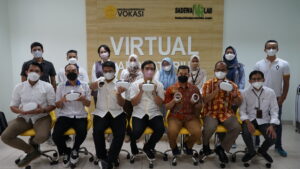
SADEWA VR Lab is an educational support facility developed through the support of the Grant for Remote & Virtual Lab Innovation Development from the Directorate of Academic Development and Learning Resources (DPASDP) UI. On Monday (31/10/2022), DPASDP has also monitored the virtual laboratory. A total of five VR applications have been tested and will become pilot projects for the laboratory, which are VR Eating (recovery of independence in eating activities); VR Dressing (recovery of independence in wearing clothes); VR Lego (application for playing lego exploration); VR Mobility (recovery of independent in functional mobility activities) which will be equipped with AR Postural Screening; and VR Front Office/Hospitality (an application for conducting customer service skills training in health institutions).
